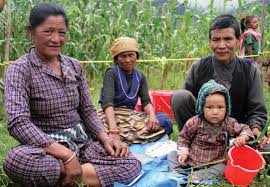In a report released on Monday, the U.N. cautioned that if global progress continues at the current rate, 575 million people will still be living in severe poverty and 84 million children won’t be attending school in 2030. It will also take 286 years to achieve gender equality.
Only 15% of the roughly 140 specific targets that experts assessed are on course to be completed by the end of the decade, according to a report on the status of the 17 broad U.N. goals that were agreed in 2015 by world leaders to improve life for the more than 7 billion people living on the planet.
According to the report, 30% of the targets are moderately or badly off course and among those; important targets for reducing poverty, hunger, and climate change have regressed or not changed at all.
The ambitious targets for 2030 include eliminating hunger and ensuring that no one lives on less than the extreme poverty line of $2.15 per day. They also include ensuring that every child receives a quality primary and secondary education, achieving gender equality, ensuring that everyone has access to clean water, sanitary facilities, and affordable energy, reducing inequalities, and acting swiftly to stop climate change.
The report’s foreword by U.N. Secretary-General Antonio Guterres warned that if we don’t take action soon, the 2030 agenda “could become an epitaph for a world that might have been.” Failure to advance means that disparities will widen raising the possibility of a divided, two-speed society.
The document was made public in advance of a conference that Guterres has scheduled for the U.N. General Assembly in September, which he has dubbed “a moment of truth and reckoning.”
Conflicts, such as the conflict in Ukraine, climate change, the COVID-19 pandemic’s lingering effects, particularly their devastating financial impact on developing countries, and geopolitical tensions are all “threaten[ing] to derail hard-earned progress,” according to Undersecretary-General for Economic and Social Affairs Li Junhua.
In a foreword, he noted that the pandemic caused learning deficits in 80% of the 104 countries examined, the biggest drop in childhood immunization rates in three decades, as well as an increase in tuberculosis and malaria mortality. According to him, it also reversed three decades of progress in eradicating poverty and led to the biggest increase in global inequality at that time.
The head of ECOSOC stated that by May 2023, a whopping 110 million people would have been displaced due to war, conflict, and human rights violations, including 35 million refugees, the greatest number ever reported.
At a press conference to introduce the report, Li stated that the U.N. would like political leaders to develop “a new roadmap” at the September summit to speed up action at the global, regional, and national levels to meet the goals by 2030.
Achieving the targets is “in deep trouble” with seven years left, according to the report, and “it is time to sound the alarm.”
It predicted that if things continue as they are, not only will 575 million people still be living in extreme poverty in 2030, but only around one-third of nations will achieve the goal of reducing their respective national poverty levels in half.
The research stated that “shockingly, food prices remain higher in more countries than in the period 2015-2019” and that “the world is back at hunger levels not seen since 2005.”
Nearly 800 million people, well beyond pre-pandemic levels, experienced hunger in 2021. In 2022, it was anticipated that 37 million individuals were overweight; 148 million experienced stunted growth, and 45 million children under the age of five experienced wasting.
In terms of education, the report stated that without significant effort, approximately 300 million students will lack the fundamental literacy and math skills necessary for success in life, and only one in six countries will meet the goal of universal secondary school completion. It is estimated that 84 million children will not be enrolled in school by 2030.
According to the report the intensification of the war on nature “if ever there was an illumination of the short-sightedness of our prevailing economic and political systems, it is the ratcheting up of the war on nature.”
The critical 1.5-degree tipping point is likely to be reached or exceeded by 2035, according to the report, which warned that the small window of time to prevent temperatures from rising beyond the internationally agreed threshold of 1.5 degrees Celsius (2.7 degrees Fahrenheit) to prevent the worst effects of the climate crisis is rapidly closing.

















